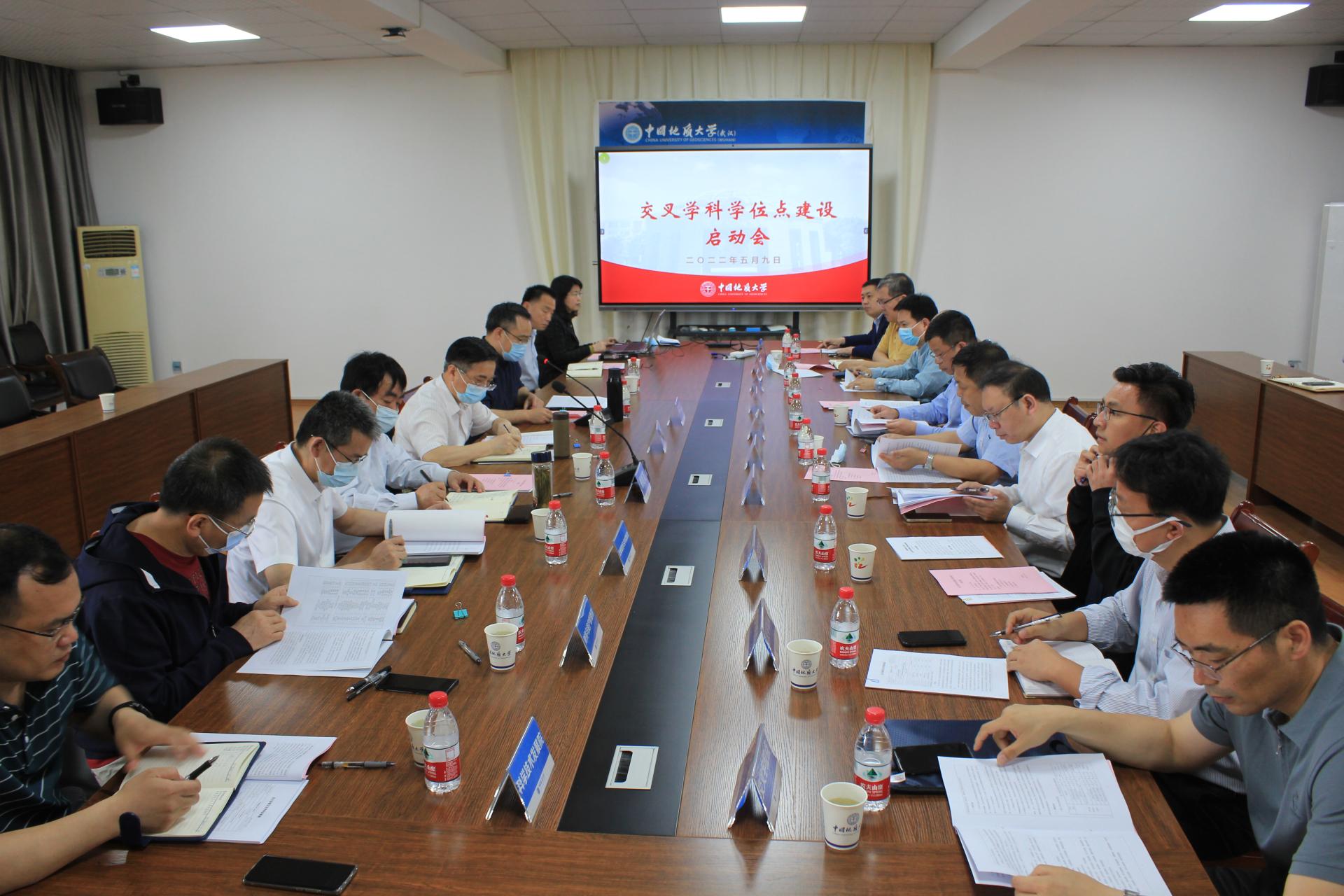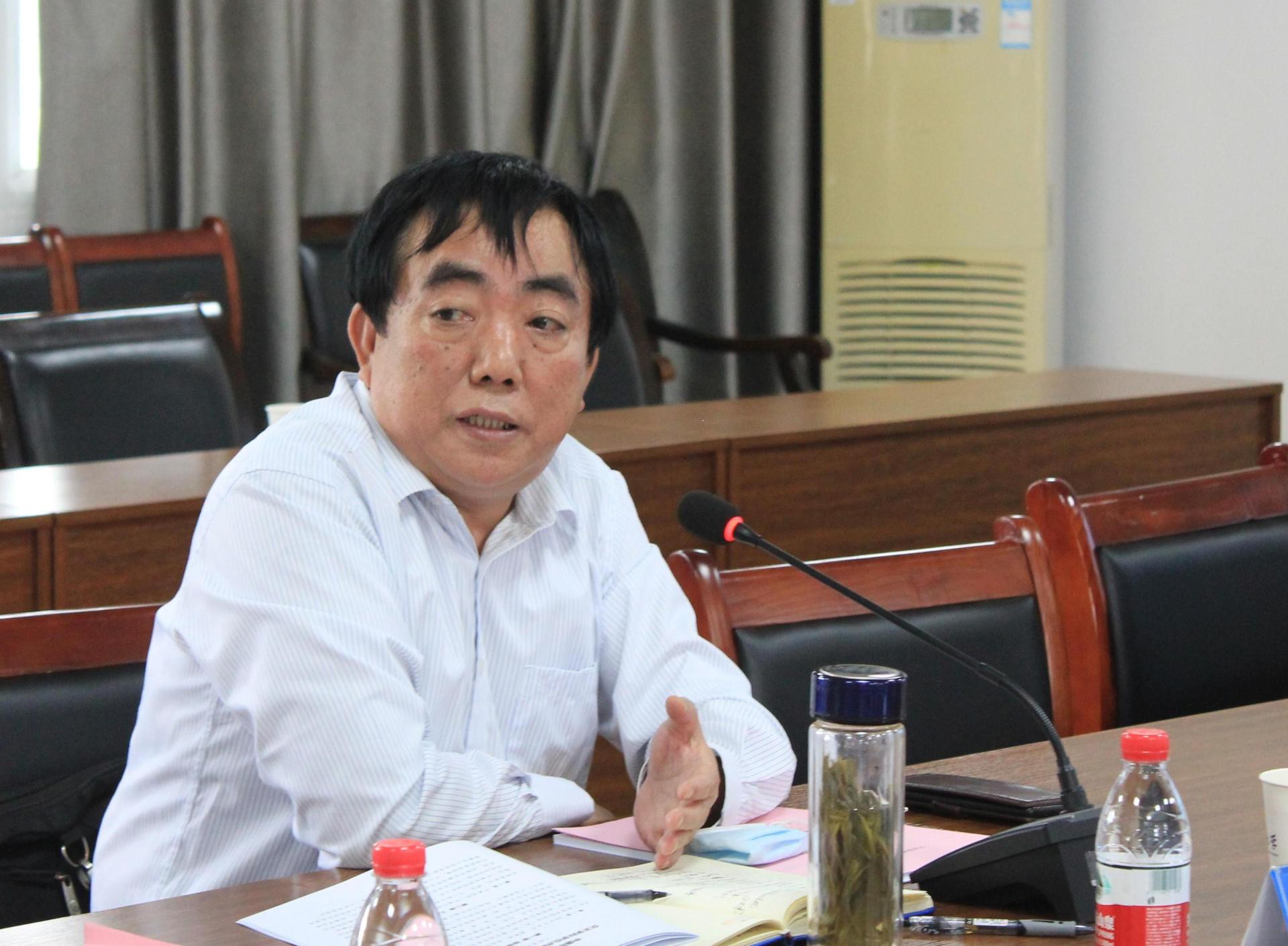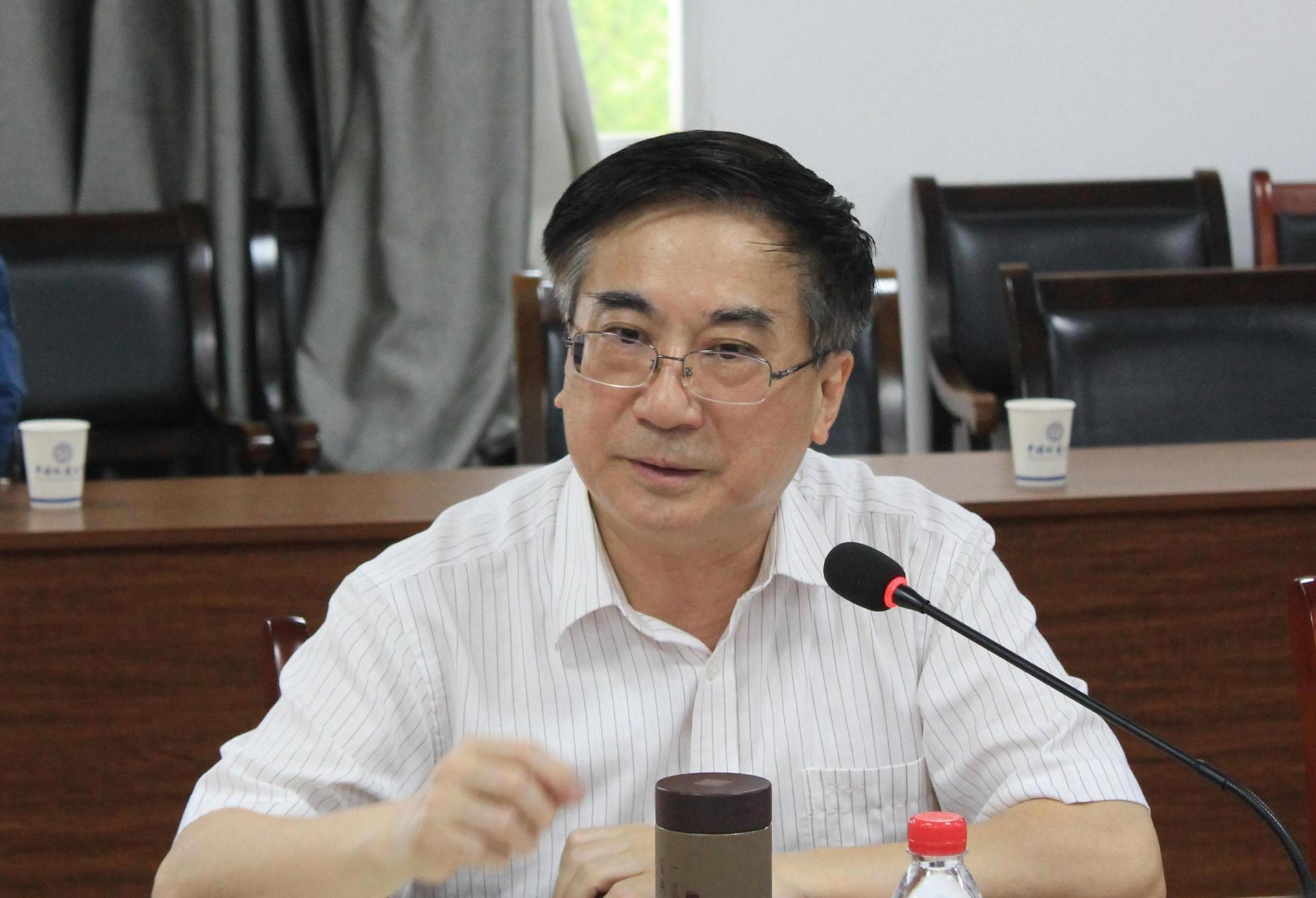(Correspondent Miao Qi and Zhang Xiang; Photographer Wang Siyun) In the morning of May 9, a meeting was held to launch the development of degree-conferring entities for interdisciplinary studies in CUG. Hosted by Wang Lizhe, executive vice dean of Graduate School, the meeting was attended by President Wang Yanxin and Vice President Lai Xulong, together with the leaders of Graduate School, Department of Development Planning and Discipline Construction, Institute of Science and Technology Development, Office of Finance and Assets Management, Institute of Future Technologies, and Institute of Advanced Studies. Deans and vice deans of the schools initiating the development, and leaders of degree-conferring entities for interdisciplinary studies were also present at the meeting.

Wang Lizhe suggested that degree-conferring entities for interdisciplinary studies should be constructed in a target-oriented way, facing the forefront of world science and technology. Focused on the issues on “what disciplines to be integrated; why and how they should be integrated”, the system and mechanism in developing the entities should be explored according to the features of interdisciplinary studies. Meanwhile, international cooperation in education should be strengthened. The program-conferring entities should also be constructed gradually and stably.
Wang Lei, vice dean of Graduate School, conveyed the guiding principles of relevant national documents, and related the history of developing degree-conferring entities for interdisciplinary studies in CUG. She also introduced the ecology and the challenge of interdisciplinary studies, and talked about the ideas and plans of development for the next move.
Leaders from different degree-conferring entities for interdisciplinary studies made speeches in turn, and they agreed that the development program is of great significance, saying that this is the moment when interdisciplinary studies should be furthered. Meanwhile, opinions and suggestions on professional training, teaching staff, scientific research, and administration were put forward and discussed.

Lai Xulong indicated that CUG attaches great importance to the development of degree-conferring entities for interdisciplinary studies. With the development of “Double First-Class” Project as its goal, CUG is expected to make an overall plan where CUG’s strengths can be leveraged. He emphasized that the plan should be a detailed one and should be integrated into national strategies and demands for regional development. He also said that a joint effort is to be made to cultivate high-quality interdisciplinary talents, to produce high-caliber research, and to implement the policies of developing interdisciplinary studies.

Wang Yanxin pointed out that CUG’s eight degree-conferring entities for interdisciplinary studies have their own strengths and characteristics. Given that interdisciplinary studies have been incorporated into China’s national development strategies and that interdisciplinary studies and interdisciplinary talent training will be the focus of future higher education reform and development, CUG should play to its strengths, support national strategies and explore innovation systems and mechanisms of developing degree-conferring entities for interdisciplinary studies. He stressed that it is necessary to dive into the main stream, leverage CUG’s own strengths and further interdisciplinary studies, and that there should be the very best supervisor team. A bottom-up, effective, demanding, intrinsically driven “joint force” is expected to gather more innovative resources for CUG and promote the Double First-Class Project.